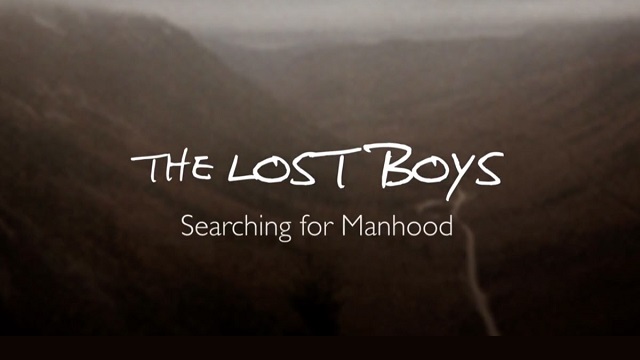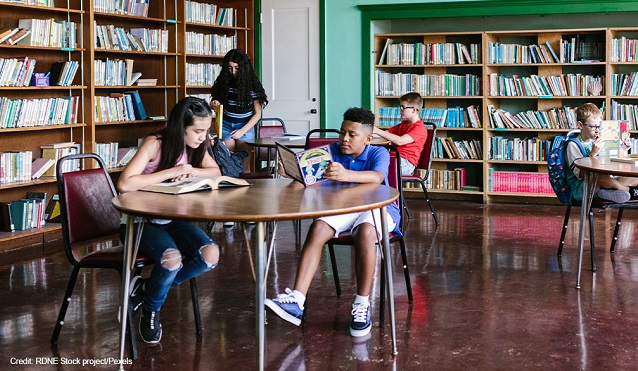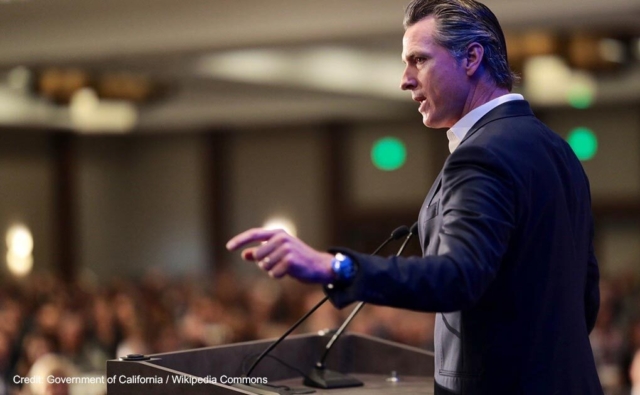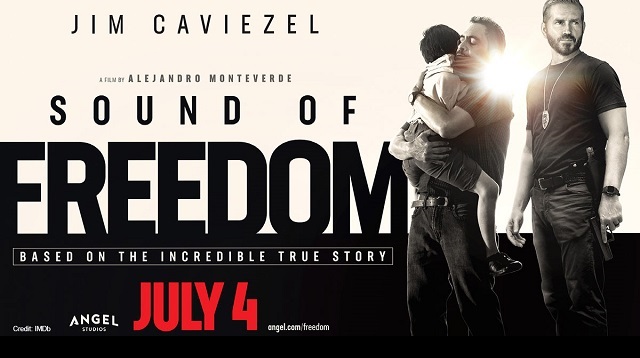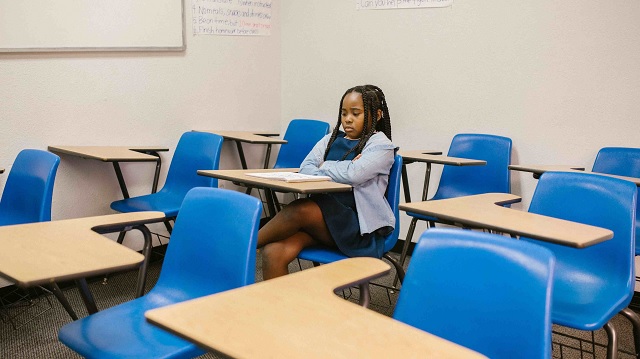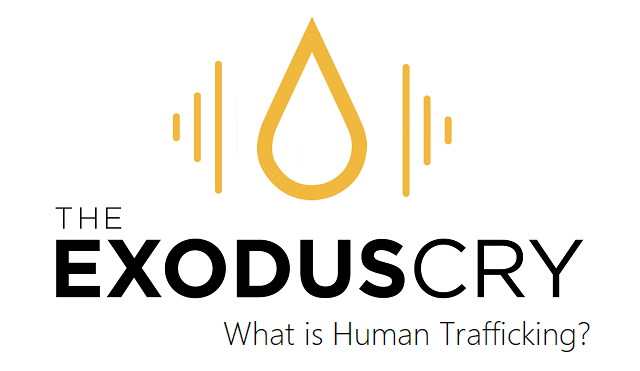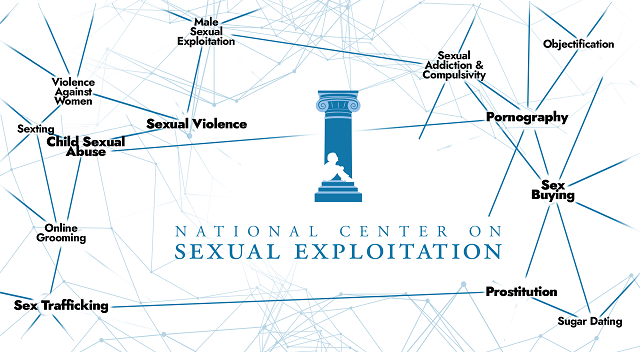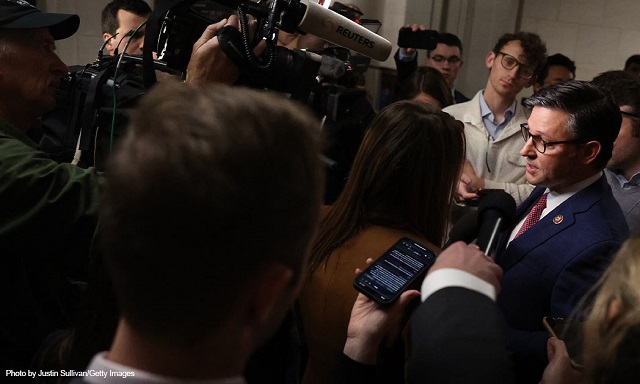
Pornography is one of the Left’s favorite political tools. It can be used to cudgel, browbeat, castigate, and shame conservatives into silence — a potential that leftists capitalize on every chance they get. The best part about it — for leftists, at any rate — is that it’s a double-edged sword, as the case of newly-minted speaker of the House Mike Johnson (R-La.) makes evident.
Most of the time, lefties berate conservative leaders who get busted using pornography. Look at Senator Ted Cruz (R-Texas) back in 2017: when Cruz’s Twitter account “liked” a pornographic tweet, leftist media outlets began their bullying, including trying to link Cruz’s political career and personal history to an obsession with the porn industry. It was later revealed that a staffer with access to the Twitter account liked the video, but the cudgeling, browbeating, castigating, and shaming had already begun.
This is the most effective use of porn as a political tool, as it not only isolates the outed conservative from his typically-not-fond-of-porn voter base, but also labels him a hypocrite, as the conservative ideology (and even the Republican Party platform) condemn porn use. But this time around, leftists are taking Johnson to task for… not watching porn.
That’s right, in a recently-resurfaced video clip, Johnson stated that he uses Covenant Eyes, an online filter and accountability program that blocks porn from laptops and cell phones and sends a designated accountability partner a regular update on websites visited. During a panel discussion entitled “War on Technology” hosted last year at Cypress Baptist Church in Benton, Louisiana, Johnson explained that Covenant Eyes had been suggested to him at a marriage conference called “Promise Keepers.” Conference speakers also suggested fathers sign up their sons once they hit the teenage years and serve as their sons’ accountability partners. Following this advice, Johnson signed up his teenage son for Covenant Eyes and the two have been one another’s accountability partners, receiving daily reports on what websites the other visited. He quipped, “I’m proud to tell you my son has got a clean slate.”
Left-wing media pundits and publications have, predictably, piled on Johnson for his position on porn. The vociferously pro-LGBT outlet “Pink News” wrote, “The revelation is yet another example of Johnson’s conservative views, which include him making a number of anti-LGBTQ+ and anti-abortion statements.” The online magazine also asked, “Should House Speaker Mike Johnson allow third-party surveillance apps on his personal devices?”
The far more mainstream Rolling Stone piled on, “Since he was elected Speaker of the House in October, Johnson’s history as a faith-obsessed, election-denying, far-right Christian nationalist has come under the microscope…” and referred to using porn-blocking and accountability software as “creepy Big Brother-ness…” The “Receipt Maven” Twitter account, which resurfaced the original clip, quipped, “[S]o basically don’t watch porn or your son/dad will know…”
Thus far, pornography has been declared a public health emergency in 16 different states: Arkansas, Arizona, Florida, Idaho, Kansas, Kentucky, Louisiana, Missouri, Montana, Oklahoma, Pennsylvania, South Dakota, Tennessee, Utah, and Virginia. The detriments of pornography are myriad — physically, psychologically, emotionally, and spiritually. This quadfecta affects practically every aspect of the human experience.
Physically, pornography has been shown to cause severe erectile dysfunction in men and reduce sexual activity among couples; coupled with psychological effects, which include depression, anxiety, irritability, decreased self-esteem, decreased motivation, neglect for responsibilities and deadlines, and the altering of the brain’s chemical makeup, these first two categories alone are enough to label pornography detrimental. The effects of pornography on emotions are equally alarming — if not more so. Increased aggression and violence, a deep sense of shame and guilt, and an inability to see other human beings as anything but objects are just a few examples of the emotional toll porn use can take.
As horrific as all of this is, pornography may be most destructive in the spiritual quadrant. Porn use dulls and dims the soul’s ability to see others as being made in the image and likeness of God (Genesis 1:26-27) and instead encourages the soul to turn inward upon itself, consuming others as meat instead of giving of oneself lovingly. Porn use destroys discipline, which impacts everything from fulfilling one’s professional and household duties to making time regularly for prayer. The sense of shame and guilt which accompanies porn use may also drive a soul away from God, too ashamed to seek His forgiveness.
Scientists have often noted that porn use typically progresses into more and more depraved categories. Scientifically, this is because the brain has become so desensitized to the images it sees that, in order to produce the dopamine the porn addict seeks, more extreme imagery must be viewed. In his novel “That Hideous Strength,” the great Christian author C.S. Lewis described this depraved progression of lust:
“It is idle to point out to the perverted man the horror of his perversion: while the fierce fit is on, that horror is the very spice of his craving. It is ugliness itself that becomes, in the end, the goal of his lechery; beauty has long since grown too weak stimulant.”
Spiritually, this seeking out of the more and more depraved, the more and more perverse is even more startling. As most Christians know, virtue is the bending of one’s own will to align with God’s. Those whom we consider holiest, noblest, and most saintly are those whose wills are so in accord with God’s that there is little discernible difference. Cultivating such virtue, of course, is an arduous and even a lifelong task — it is no mere matter of wishing or wanting, and its demands are often high. The martyrs are prime examples of this: from Peter and Paul to Maximilian Kolbe and Dietrich Bonhoeffer, the ardently virtuous offer their wills to God so completely that their very lives come along with them. Although all are, of course, made in the image and likeness of God, the virtuous are those who clarify that image and let it shine brightly and colorfully forth.
Conversely, those who live according to vice turn away from the image of God and remake themselves in the image of Hell. They bend their wills so far away from God’s own that they actually run in the opposite direction. Pornography is a horrifically illustrative example of this principle. God, of course, created sex. He made it to be something beautiful, intimate, loving, life-giving, and self-sacrificial. In fact, sex is itself also made in the image of God: God’s love is so great, so filled is He with love in each of His three persons, that He had to make that love flesh, it had to spill over into new life: mankind.
So also did God create sex to be a blessed marital act mirroring the love of the Trinity, a spilling over of a joyful, self-giving love that bears both spiritual fruit and, if God wills it, the physical fruit of a child. Porn warps and distorts this beauty, it takes the image of God out of sex and turns the whole act inwards upon itself, becoming a matter only of predatory self-satisfaction. No longer the giving of oneself in love and the openness to new life, porn is simply the consuming of others, stripping them of not just their clothes but their God-given dignity, their very humanity.
The progression of the pornographic perversion from one dehumanization to an even greater and more vile dehumanization is indicative of the soul’s turning away from God and remaking itself more and more nearly in the image of Hell, where, without sincerely repenting and accepting God’s grace and forgiveness, it will surely spend eternity.
Before his execution, Ted Bundy — the notorious serial killer who confessed to the kidnap, rape, and murder of 30 women — spoke to Dr. James Dobson of Focus on the Family about the link between his depraved crimes and pornography. Bundy told Dobson that between the ages of 10 and 13, he began a fascination with “soft-core” pornography. He explained, “I would keep looking for more potent, more explicit, more graphic kinds of materials. Like an addiction, you keep craving something which is harder, harder. Something which gives you a greater sense of excitement. Until you reach the point where the pornography only goes so far.” Bundy stressed that, to all those around him, he was the image of a “normal person,” even the “All-American boy.” But, he said:
“I think people need to recognize that those of us who have been so much influenced by … pornographic violence are not some kinds of inherent monsters. We are your sons, and we are your husbands. And we grew up in regular families. And pornography can reach out and snatch a kid out of any house today. It snatched me out of my home 20, 30 years ago, as diligent as my parents were, and they were diligent in protecting their children.”
Bundy was executed in 1989, back when pornography was only available in magazines and on VHS tapes bought at seedy downtown shops or smuggled from friend to friend at school. The pervasive nature and instant accessibility of internet pornography was something Bundy never witnessed. If pornography could “snatch a kid out of any house” in 1989, it now invades homes and devours children alive through their phones, tablets, and laptops. A recent survey by Common Sense Media found that 73% of teens reported they watch online pornography and over half reported that they had been exposed to pornography by the age of 13. Sadly, 15% admitted that they had seen porn before the age of 11.
As a devout Christian, Mike Johnson knows that it is his fatherly duty to protect his children from the soul-sucking scourge of pornography. Holding his son accountable through using Covenant Eyes in order to cultivate the virtue of chastity is not freakish, backwards, repressive, or controlling — it is noble, loving, caring, and truly masculine. What father would want to condemn his son to a life suffering from erectile dysfunction, emotional instability, an inability to experience emotional and sexual intimacy, a crippling addiction, exponentially-worsening depravity, and spiritual suicide?
It should be no surprise that the same mob which shows no concern for the blood of untold millions of unborn babies would deride a father for shielding his son from the horrors of pornography. Instead, leftists’ mockery of Johnson reveals their obsession with pornography. While they may take a flippant “lose-lose” approach to conservatives and porn — conservatives lose for getting caught looking at porn and lose for actively avoiding it — Johnson clearly takes the Christian approach: recognizing that both he and his son have lost if he doesn’t protect his son from the perverse cancer of pornography.
AUTHOR
S.A. McCarthy serves as a news writer at The Washington Stand.
EDITORS NOTE: This Washington Stand column is republished with permission. All rights reserved. ©2023 Family Research Council.
The Washington Stand is Family Research Council’s outlet for news and commentary from a biblical worldview. The Washington Stand is based in Washington, D.C. and is published by FRC, whose mission is to advance faith, family, and freedom in public policy and the culture from a biblical worldview. We invite you to stand with us by partnering with FRC.


